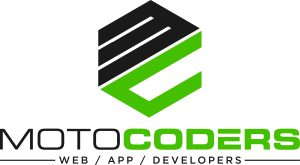AI automation for marketing departments
Most marketing departments today are turning to AI automation to streamline their processes and improve efficiency. By integrating artificial intelligence into your marketing strategies, you can enhance data analysis, personalize customer interactions, and optimize campaigns in real-time. This technology not only helps you save valuable time and resources but also enables you to make more informed decisions based on customer behavior and preferences. As you explore the potential of AI automation, you’ll discover how it can transform your marketing efforts and drive better results for your organization.
Key Takeaways:
- Efficiency: AI automation streamlines repetitive tasks, allowing marketing teams to focus on strategic initiatives.
- Personalization: Leveraging AI helps create tailored marketing experiences based on customer data and behavior.
- Analytics: AI tools provide deeper insights through advanced analytics, improving decision-making processes.
- Cost-effectiveness: Automating marketing processes can significantly reduce operational costs and improve ROI.
- Scalability: AI-driven solutions enable marketing departments to scale their efforts seamlessly as demand grows.
Understanding AI Automation in Marketing
Before plunging into AI automation, it’s important to grasp the fundamentals of how it reshapes your marketing strategies. AI automation is not just about replacing human effort; it enhances and streamlines your processes. From data analysis to personalized communication, it paves the way for more efficient and effective marketing efforts.
Definition and Scope
By understanding AI automation, you can leverage cutting-edge tools that enhance your marketing initiatives. It encompasses a range of technologies designed to automate repetitive tasks, analyze customer data, and optimize campaigns, allowing you to focus on strategic planning and creativity.
Key Technologies Involved
At the heart of AI automation in marketing lie several key technologies. These include machine learning, natural language processing, and predictive analytics. Each of these plays a distinctive role in elevating your marketing efforts, ensuring that your strategies remain data-driven and adaptable.
A deeper exploration into these technologies reveals their significance. Machine learning algorithms analyze vast amounts of data to identify patterns, driving more informed decision-making. Natural language processing allows your marketing messages to resonate with audiences through personalized communication. Predictive analytics forecasts customer behavior, enabling you to tailor your marketing campaigns effectively and optimize your outreach efforts. This blend of technologies equips you with the tools needed to excel in the fast-evolving marketing landscape.
Benefits of AI Automation for Marketing Departments
While adopting AI automation can transform your marketing department, its benefits are multifaceted. By streamlining repetitive tasks and improving decision-making, AI allows you to focus on your creative strategies. Moreover, you can discover What Are the Best AI Marketing Tools? to enhance your campaigns further.
Increased Efficiency and Productivity
Between automated processes and intelligent data analysis, AI significantly boosts your team’s efficiency and productivity. You can dedicate more time to strategic planning while the routine tasks are handled autonomously, ensuring timely campaign execution.
Enhanced Customer Insights
About leveraging AI tools, you gain deeper insights into customer behavior and preferences. By analyzing large datasets, AI assists you in identifying patterns, allowing you to tailor your marketing efforts more effectively.
Another advantage of enhanced customer insights is the ability to create personalized experiences. With the power of AI, you can segment your audience based on their behaviors and preferences, ensuring that your messaging resonates with them. This targeted approach not only increases engagement but also drives higher conversion rates, ultimately maximizing your marketing ROI.
Applications of AI in Marketing Automation
Keep exploring the transformative role of AI in streamlining your marketing processes. From enhancing customer engagement to optimizing campaigns, the applications are extensive. For an in-depth understanding, check out 9 Best AI Marketing Automation Use Cases that can elevate your strategic efforts.
Content Creation and Curation
Across various industries, AI tools are increasingly being utilized to generate and curate content that resonates with your audience. These technologies can analyze trends, audience preferences, and engagement metrics to deliver tailored content that drives interaction and improves brand visibility.
Predictive Analytics and Customer Targeting
Predictive analytics enables you to identify potential customer behaviors and preferences, allowing for timely and targeted marketing strategies. This foresight helps you to allocate resources effectively and personalize your campaigns, enhancing customer satisfaction and retention.
Analytics play a significant role in understanding customer journeys and predicting future interactions. By employing these AI-driven insights, you can create more effective marketing strategies tailored to specific customer segments, ensuring that your efforts resonate on a personal level. Your ability to adjust campaigns in real-time based on predictive data will ultimately lead to improved engagement and conversion rates.
Challenges and Considerations
For marketing departments looking to leverage AI automation, it’s important to identify potential challenges that may arise. You may encounter issues such as ensuring data quality, managing change within your team, and navigating the learning curve associated with new technologies. Addressing these challenges early on can help you maximize the benefits of AI while minimizing disruptions to your workflow.
Data Privacy and Ethics
Before implementing AI automation, you need to ensure that your processes align with data privacy laws and ethical standards. Your customers trust you with their information, so it’s imperative that you handle their data responsibly. This includes obtaining consent for data usage, understanding the implications of your algorithms, and being transparent about how AI impacts customer interactions.
Integration with Existing Systems
About successfully integrating AI automation into your current marketing setup, you should evaluate the compatibility of new technologies with your existing systems. This may involve assessing your current software infrastructure, available APIs, and the skills of your team to manage the transitions effectively.
Challenges arise when trying to merge AI tools with your pre-existing marketing systems. You might face technical difficulties, such as incompatible software or data silos that complicate information flow. Additionally, training your team to use these new systems may take time and resources. Carefully planning this integration will help you ensure a smoother transition and enhance overall productivity.
Best Practices for Implementing AI Automation
Now that you understand the potential of AI automation in marketing, it is imperative to implement it effectively. Start by adopting best practices that ensure your AI tools align with your department’s goals and strategies. This approach will help you maximize the benefits of automation while minimizing any challenges that may arise.
Setting Clear Objectives
Between the myriad AI solutions available, it’s vital to define clear objectives for your automation efforts. Assess what specific tasks you want to enhance or streamline, whether it’s improving lead generation, optimizing email campaigns, or personalizing customer interactions. Having focused goals will guide your implementation process and drive meaningful results.
Continuous Monitoring and Optimization
Best practices in AI automation involve regular monitoring and optimization of your tools and strategies. By consistently analyzing performance metrics, you can identify areas needing adjustment or enhancement. This ongoing process ensures that your automation efforts remain effective and aligned with your marketing goals.
To achieve the best outcomes, establish a routine for evaluating the performance of your AI systems and the results they generate. Consider utilizing A/B testing for different strategies and adapt based on the findings. This proactive approach not only helps in fine-tuning the AI algorithms but also enhances your team’s ability to make data-driven decisions, leading to improved efficiency and effectiveness in your marketing campaigns.
The Future of AI in Marketing
Not only is AI automation transforming your marketing strategies, but it is also revolutionizing the way you engage with customers. The future of AI in marketing will focus on hyper-personalization, predictive analytics, and enhanced customer experiences. As these technologies evolve, you can expect your marketing efforts to become more efficient and aligned with consumer behavior, allowing you to achieve better results with less effort.
Emerging Trends and Innovations
By harnessing the power of advanced algorithms and machine learning, you will soon see a surge in innovative tools and platforms designed to streamline your marketing processes. These trends will emphasize real-time data analysis, automated content creation, and improved customer insights, making your marketing efforts more impactful.
The Role of Human Creativity
Around the advancements in AI, your human creativity remains an indispensable asset. As AI takes on repetitive tasks and data analysis, the focus shifts to you—crafting unique campaigns that resonate emotionally with your audience. By merging AI-driven insights with your creative instincts, you can produce content that stands out in a crowded marketplace.
The integration of AI in your marketing does not diminish the need for creativity; it amplifies it. The true art of marketing combines data-driven insights with your imaginative vision, allowing for richer storytelling and deeper customer connections. As AI handles the analytics and optimization, you are empowered to explore new creative possibilities, experiment with fresh ideas, and craft messages that speak to your audience’s hearts—a blend that will define the future of marketing.
FAQ
Q: What is AI automation in marketing departments?
A: AI automation in marketing departments refers to the use of artificial intelligence technologies to perform marketing tasks and processes with minimal human intervention. This can include data analysis, customer segmentation, campaign management, content creation, and more. By leveraging AI, marketing teams can enhance efficiency, improve targeting, and optimize resource allocation.
Q: How can AI automation improve customer targeting?
A: AI automation enhances customer targeting by utilizing machine learning algorithms to analyze vast amounts of data from various sources. These algorithms identify patterns and behaviors in customer interactions, allowing marketing departments to segment audiences more effectively. Consequently, marketers can create more personalized messages and offers that resonate with specific customer groups, leading to improved engagement and conversion rates.
Q: What are some common tasks that can be automated using AI in marketing?
A: Several marketing tasks can be automated using AI, including email marketing campaigns, social media posting, lead scoring, customer service chatbots, and content generation. For example, AI can automatically send personalized emails based on user behavior or utilize chatbots to answer customer inquiries in real time. This automation not only saves time but also enhances the overall customer experience.
Q: What challenges do marketing departments face when implementing AI automation?
A: While AI automation offers many benefits, marketing departments may encounter challenges such as data quality issues, integration with existing systems, and the need for employee training. Poor-quality data can lead to inaccurate insights and ineffective campaigns, so ensuring data cleanliness is necessary. Additionally, integrating AI tools with current marketing platforms may require technical adjustments and expertise, which can necessitate training for staff to leverage AI solutions effectively.
Q: How can AI automation affect the roles of marketing professionals?
A: AI automation can significantly change the roles of marketing professionals by allowing them to shift their focus from repetitive tasks to more strategic initiatives. As AI handles data analysis and campaign management, marketers can devote more time to creative work, developing innovative strategies, and building relationships with customers. While some roles may diminish, new opportunities will likely arise as the industry evolves with AI technology.






